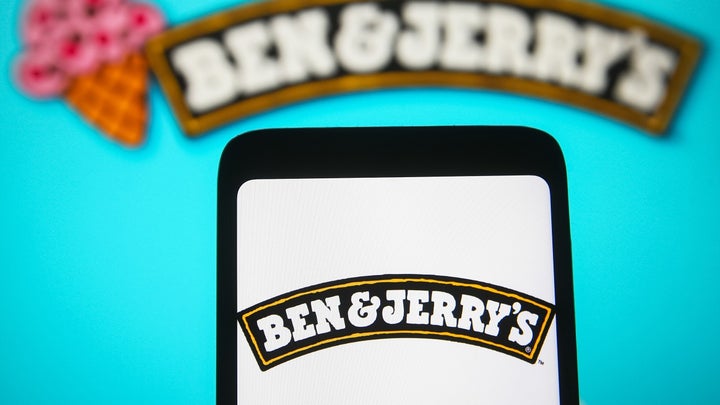



Ben & Jerry’s, the popular ice cream brand, is facing a significant public backlash reminiscent of the Bud Light boycott, following its recent statement that the United States exists “on stolen land” and urging customers to commit to returning indigenous territories, starting with Mount Rushmore.
The timing of the statement, coinciding with Independence Day celebrations, has sparked outrage among social media users.
The company’s official Twitter account posted, “This 4th of July, it’s high time we recognize that the US exists on stolen Indigenous land and commit to returning it,” accompanied by a link to a blog post elaborating on the topic. The statement drew swift and fierce criticism, with many calling for a boycott of the brand.
In a blog post, Ben & Jerry’s expounded on its position, stating, “The only problem with all that, though, is that it can distract from an essential truth about this nation’s birth: The US was founded on stolen Indigenous land. This year, let’s commit to returning it. Here’s why we need to start with Mount Rushmore.”
The online backlash was immediate, highlighting the discontent among consumers. Adding to the controversy, Ben & Jerry’s also recently announced that it would cease paying for advertising on Twitter, citing concerns over a rise in “hate speech” on the platform since it came under the ownership of Elon Musk.
In its blog post, the self-described progressive company expressed concerns about the changes observed at Twitter since Musk’s acquisition, stating that “hate speech is up dramatically while content moderation has become all but non-existent.” Ben & Jerry’s further accused Musk of promoting “dangerous anti-democratic lies and white nationalist hate speech” and claimed that Twitter had become a threatening and dangerous space for individuals from various backgrounds.
Consequently, Ben & Jerry’s declared that it would halt its Twitter advertising expenditures until the platform addressed the extremist and violent content it hosts. The company also called on other businesses to join its ad boycott in an effort to combat the perceived toxicity and endorsement of hate and violence on Twitter.
Known for its involvement in progressive political causes, Ben & Jerry’s sparked controversy in 2021 by announcing its decision to cease selling ice cream in Israel’s “Occupied Palestinian Territory,” specifically referring to the West Bank and Gaza Strip.
While the fallout from these recent developments remains uncertain, Ben & Jerry’s continues to grapple with the consequences of its statements and actions. Ultimately, despite its cultural impact, it is important to remember that Ben & Jerry’s is, at its core, just an ice cream company.
SOURCES:



